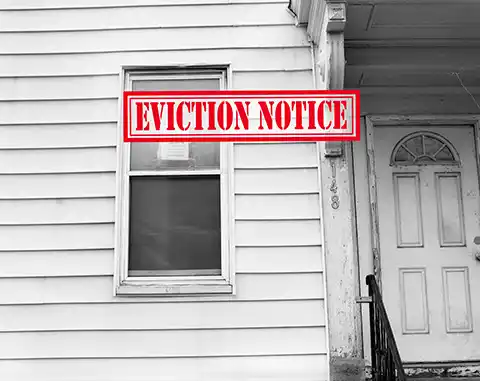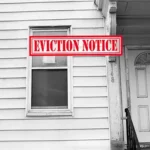Housing Stability and Tenant Protection Act of 2019
On Friday, June 14, 2019, Governor Andrew Cuomo signed into law the Housing Stability and Tenant Protection Act of 2019 (HSTPA). This law significantly increased the protections provided to tenants. The law made a number of changes to New York State’s rent laws. One of the main things that the law did was to make permanent the rent stabilization laws. The law essentially limited certain advantages of landlords while extended certain protections to tenants. Consequently, landlords have become less powerful in the day-to-day operation of their real estate operations and tenants have become empowered by these newfound enactments. This article will describe some of the more important changes that the HSPTA has implemented.
In the area of a landlord-tenant laws, several significant changes have now been realized. The law now requires notices of rent increases of more than 5% or a notice of nonrenewal depending on the term of the lease. Real Property Law (RPL) § 232-a, requires this notice to be served by a process server. RPL § 232-e, now require landlords to mitigate their damages or otherwise take actions to limit their damages. RPL § 238-a, now limits the fees that can be sought in a summary proceeding, except if provided by regulation or statute. The tenants must be given 14 days for a rent demand. (Real Property Actions and Proceedings Law) RPAPL § 745 has undergone several changes. Prior to the enactment of the HSPTA, a petitioner was able to seek use and occupancy payments through the court as of the date the notice of petition and petition was served, after the tenant requested an adjournment for more than 30 days. In addition, the petitioner would have the right to seek dismissal of defenses and counterclaims, if the tenant did not make the payments for use and occupancy.
With the new changes to the rent laws, a petitioner must now wait 60 days before a court would consider granting use and occupancy. However, the tenant’s request for an adjournment to seek counsel does not count towards the 60 days. In addition, the order to pay use and occupancy is only as of the date of the order. The order to pay use and occupancy must be on a written notice and if the tenant does not pay the use and occupancy as a result of the court notice, the remedy is a trial subject to the court’s scheduling. The petitioner can no longer seek dismissal of the tenant’s defenses and counterclaims. Also, if the tenant can make a valid claim of overcharges or hazardous or immediately hazardous conditions to the apartment, the court will not order the tenant to pay use and occupancy.
A landlord seeking to take possession of an apartment must give the appropriate amount of notice to the tenant. If the tenant has been residing in the premises for less than one year, then the landlord must provide the tenant with a 30 days notice of termination of tenancy. If the tenant has been residing in the apartment for more than one year, but less than two years, then the landlord must give the tenant a 60 days notice of termination of tenancy. If the tenant has been residing in the apartment for more than two years, then the landlord must provide the tenant with a 90 days notice of termination of the tenancy. The failure of a landlord to comply with these new notice requirements for terminating a tenancy would result in the landlord’s holdover action being dismissed, because of a defective notice of termination of tenancy.
RPAPL § 749, now requires a martial to give 14 days notice prior to execution of the warrant of eviction. The court also now has the power at any time to stay, vacate or restore the tenant to possession of the apartment. In addition, a tenant who has a warrant of eviction for nonpayment can now pay any time before the execution of the warrant.
RPAPL § 753, now provides the court with discretion to stay a summary eviction cases for up to one year as the tenant remains in the apartment. The court will consider a number factors including whether the tenant is able to pay use and occupancy. The new law also changes the time for a tenant to cure a lease violation from 10 days to 30 days.
RPAPL § 768 was added to create a Class A misdemeanor for an unlawful eviction, along with civil penalties of between $1000 to $10,000 per violation. RPL § 223-b, has been changed to indicate that complaints made either to the landlord or the landlord’s agent or to a governmental agencies can be considered when assessing whether the landlord is liable for retaliatory eviction. A landlord cannot retaliate against a tenant for making a complaint based on the warranty of habitability. A landlord cannot substantially change the terms of the tenancy in retaliation for a tenant’s complaints. In the event that the landlord attempts to evict the tenant within one year of a good faith complaint, there is a rebuttable presumption that the eviction is retaliatory. The landlord must establish a non-retaliatory reason for the eviction to rebut that presumption. In the event that the tenant sues the landlord for retaliatory eviction, RPL § 223-b allows the tenant to seek and be entitled to attorneys’ fees from the landlord.
General Obligations Law § 7-108, has been changed to limit the amount a landlord can charge for a security deposit to the amount of one month’s rent. The landlord may not keep any portion of the security deposit for normal wear and tear of the premises during the period of the tenancy. Landlords must provide an itemized statement to the tenant within 14 days after the tenant vacates the premises. The itemized list must indicate any portion of the security deposit that the landlord intends to keep and the reason why landlord intends to keep that portion of the security deposit. If a landlord fails to provide this statement within the 14 days, the landlord gives up his or her right to keep any part of the security deposit.
The Ottley Law Firm, PC will assist you with evicting your tenant from the premises. We will have you come in for a consultation and obtain the necessary information for providing you with the appropriate legal advice for your particular situation. We will assist you in navigating the complex route through the New York City housing court to successfully allow you to retake possession of your rented apartment.


 Hi, we’re TOLF and have been serving clients for over 17 years. We provide a wide range of legal services. Call us Today!
Hi, we’re TOLF and have been serving clients for over 17 years. We provide a wide range of legal services. Call us Today!





0 Comments